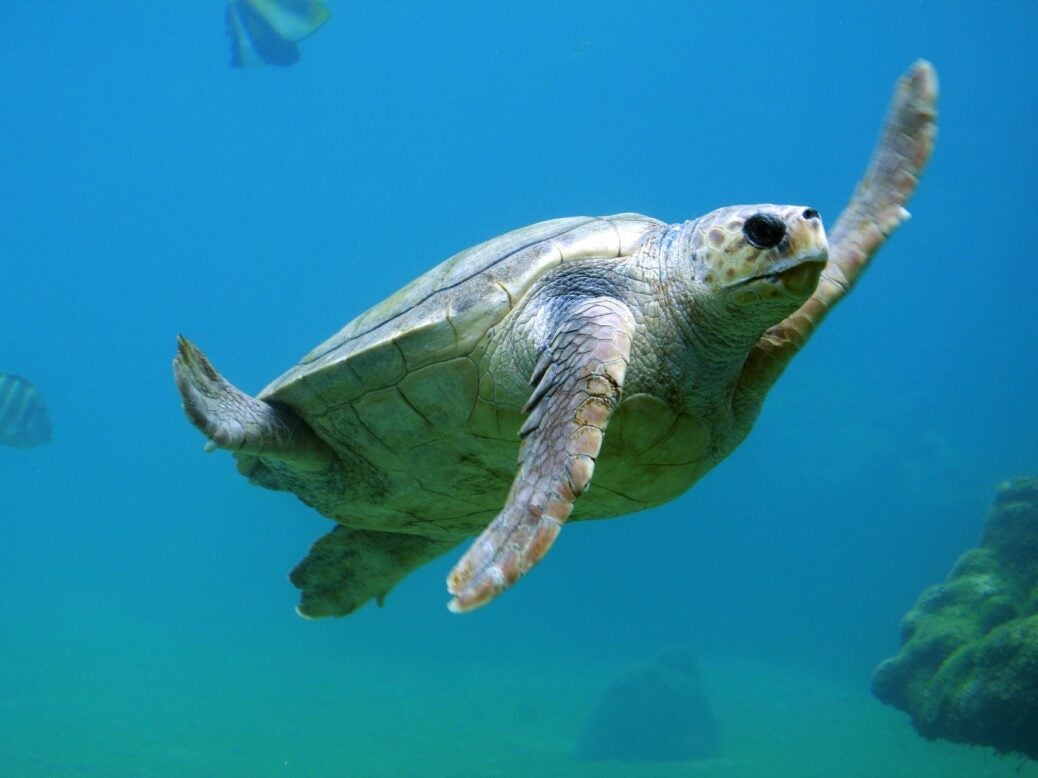
A remote island in the middle of the Atlantic offers hope that marine protection areas could mitigate climate change, write HRH Princess Eugenie and Clare Brook
It is no secret that the ocean is beautiful, inviting, and full of fascinating creatures. However, it is also the source of all life on Earth, and essential to helping that life thrive.
The ocean provides more than half our oxygen and is a huge carbon sink, which means it absorbs nearly half the carbon dioxide we produce. Over the past two centuries, for example, it has absorbed much of the excess heat generated by industrialisation. But the ocean is only able to provide these climate-mitigating functions because of the life within it.
Sadly, we are seeing the systemic destruction of millions of marine creatures and plants which help to keep us alive. By stripping the ocean of life through human activity such as industrial fishing – described by some as ‘the largest hunting operation on the planet’ – we are threatening the best natural solution we have to climate change on the planet.
There is still time to turn things around, if we work together. This is a key part of the pioneering work being done by ocean conservation charity Blue Marine Foundation (BLUE). In order for the ocean to recover to optimal levels of life, at least 30 per cent must be placed under strict protection and the other 70 per cent must be sustainably managed.
Today, only 2.7 per cent of the ocean is highly protected, so we have lots of work to do. A hopeful example can be found in the middle of the Mid-Atlantic Ridge, a chain of undersea volcanoes which many studies believe to be where life on Earth began.

One such volcano, which emerges from the sea 1,000 miles off the coast of Africa, is Ascension Island.
It is a United Kingdom overseas territory, just 88 square kilometres in size, with a population of just under 800. Its waters, which extend out 200 nautical miles, are teeming with life: large billfish such as marlin, sailfish and swordfish, 12 species of sharks and rays, and 133 species of coastal fish – 11 of which are found nowhere else on earth.
Ascension is also home to a huge colony of nesting green sea turtles in the Atlantic. More than 400 turtles land on the island’s main nesting beach, Long Beach, every night during peak season, and more than 25,000 nests are laid along Ascension Island’s coast annually.
The population was severely depleted by harvesting of nesting females for meat during the 19th and early 20th centuries, but it is recovering after decades of protection, with numbers having increased by more than 500 per cent since monitoring began. With wildlife as abundant and resilient as this, where better to prove that significant ocean protection can, and does, work?
The ambitious vision of the Ascension Island community, supported by the Blue Marine Foundation and its Great British Oceans Coalition partners, has seen 445,000 square kilometres of Ascension Island’s waters protected.
Until recently, offshore longline fishing targeted Ascension’s waters for tuna, delivering high levels of bycatch, including turtles, rare fish and seabirds. Now, an extraordinary 99.5 per cent of the Ascension Island’s Marine Protected Area (MPA) is ‘no-take’ area, closed entirely to fishing, with a small coastal fishing zone to keep local fisheries for subsistence and recreation alive.
This MPA, the second largest no-take area in the Atlantic after the more recently designated waters of Tristan da Cunha, will now always provide refuge to the marine wildlife that is so quickly disappearing elsewhere.
As part of the ‘Blue Belt’ programme, the UK government has now committed to funding the management, science and enforcement of the MPA, while an endowment fund provided by the visionary philanthropist Peter Lürssen, supported by BLUE, will support the on-island community with educational programmes, heritage projects and sports facilities.
The speed with which Ascension went from overexploited to highly protected, and the determination of the island community to position their waters as one of the best marine protected areas in the world, is truly heartening.
If the rest of the world were to follow Ascension’s example, we could see fish stocks recovering and carbon-absorbing habitats reviving within a few years – all with the potential to mitigate climate change. There is only one ocean. The challenges it faces are sadly man-made and most can be turned around if we act now. If we work together to protect it, the ocean will protect us – in perpetuity.
HRH Princess Eugenie is Ambassador of BLUE and Clare Brook is the charity’s CEO.
More from Spear’s
Money to burn: How investors must save the world from climate change
Spear’s Wealth Insight Forum 2021: Watch on demand now
Why a ‘rejuvenated’ UK marine environment is essential






